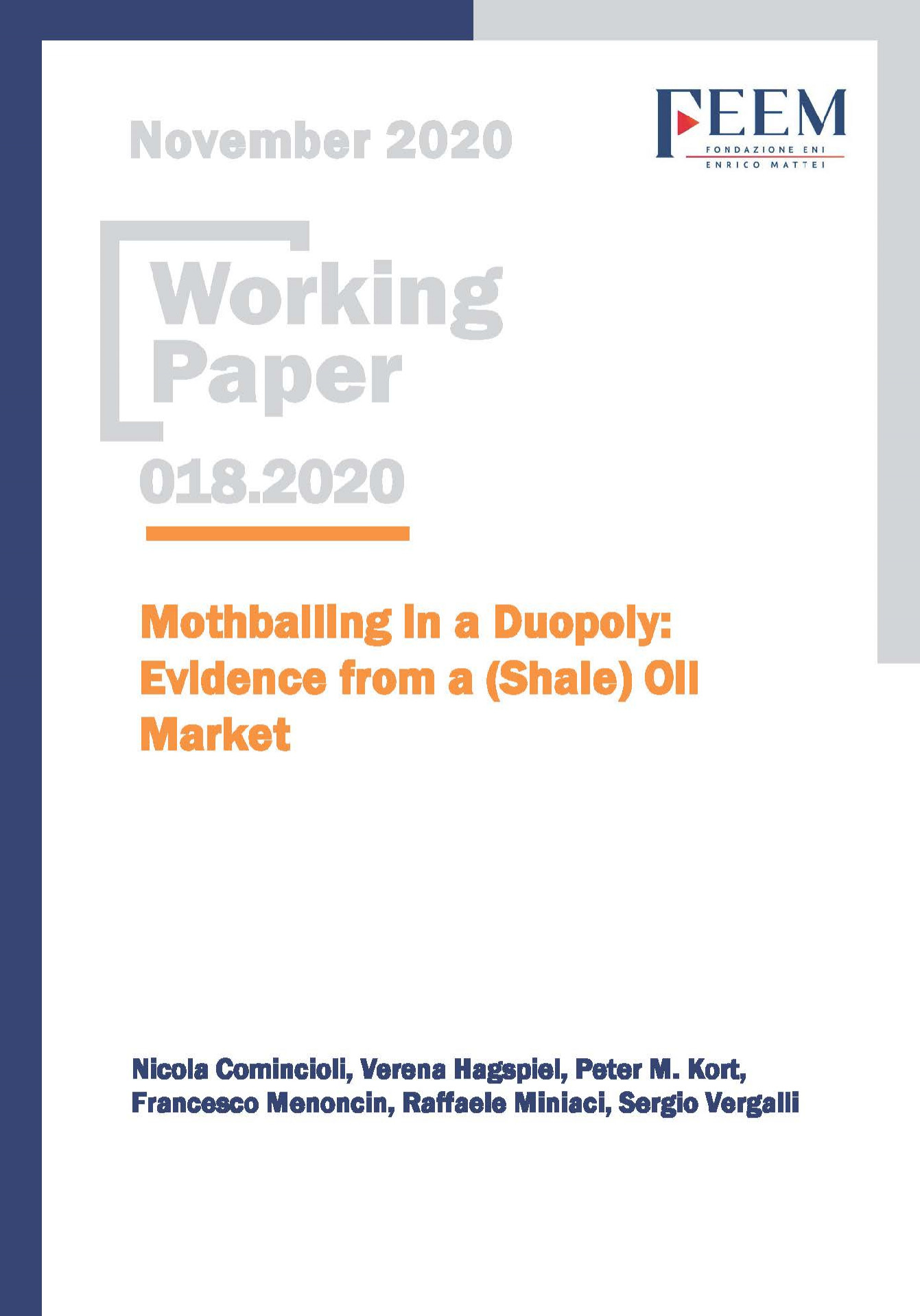Mothballing in a Duopoly: Evidence from a (Shale) Oil Market

03.11.2020
L12, L71, Q41
Crude Oil, Shale Oil, Mothballing, OPEC, Output Game
2030 Agenda
Sergio Vergalli
The mothballing option has been studied in the literature, but mainly in decision theoretic frameworks. This paper looks at it from a strategic point of view and applies it to an incumbent-entrant framework. In particular, based on the recent strategic interactions between OPEC and the shale oil industry, we conduct a case study where the incumbent OPEC is a exible producer that competes with a representative shale oil firm. Upon entry, the latter produces a fixed amount but it can apply the mothballing option in times of low demand. Our main results are threefold. First, we find that under low demand uncertainty, the mothballing option has a negative effect on the value of the entrant. Second, a large market share of the entrant will stimulate mothballing, caused by a so-called squeeze strategy of the incumbent. Third, our empirical analysis of the (shale) oil market learns that a higher demand elasticity induces mothballing.
***
Suggested citation: Comincioli, N., V. Hagspiel, P. M. Kort, F. Menoncin, R. Miniaci, S. Vergalli, (2020), ‘Mothballing in a Duopoly: Evidence from a (Shale) Oil Market’, Nota di Lavoro 18.2020, Milano, Italy: Fondazione Eni Enrico Mattei
